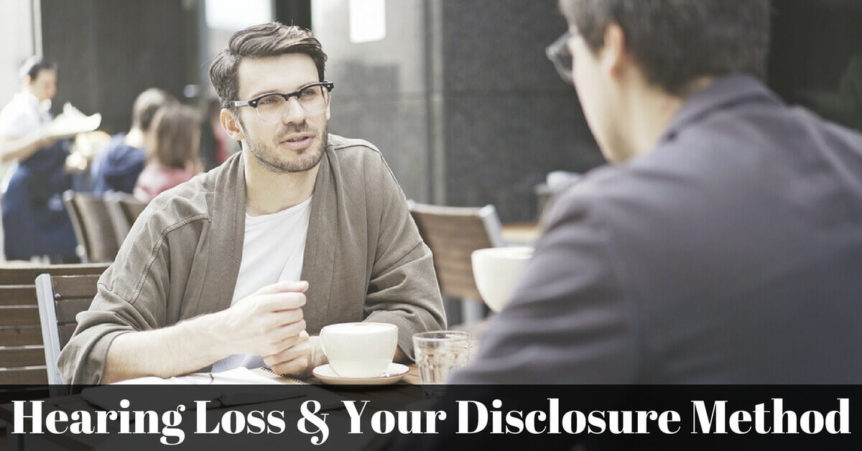- The Harm of Smoking to the Ears - April 9, 2025
- The Importance of Exercise for Hearing Health - March 11, 2025
- Movie Theaters and Hearing Aids - February 13, 2025
Three types of disclosure strategies
Researchers at Massachusetts Eye and Ear surveyed 337 patients with hearing loss to better understand the language they use when communicating with partners or members of their social circle about hearing difficulties. The study found people with hearing loss talk about it in three ways: basic disclosure, nondisclosure and multipurpose disclosure. This study as well as other studies, discovered it is best to describe your hearing loss and avoid becoming frustrated and isolated due to that condition.
“We think it can be empowering for patients to know that these strategies, and especially the multipurpose disclosure strategy, are available to them,” said senior author Konstantina M. Stankovic, M.D., Ph.D., FACS, an otologic surgeon and researcher at Mass. Eye and Ear and an associate professor of otolaryngology at Harvard Medical School.
“Hearing loss is an invisible disability; however, asking people to slow down or face someone with hearing loss while speaking may improve communication,” Stankovic says.
Basic Disclosure
You describe the basics of your hearing issue with the people closest to you that you think need to know. It would go something like this: I have trouble hearing due to an ear infection I had a number of years ago. This tells people you may need some accommodations because of hearing difficulties. You have provided them with some information that can help keep communication flowing. This opens up the avenue to discuss hearing loss and ask people to help you deal with it.
Nondisclosure Frankly, this is the least productive of the three disclosure methods. You simply say – I can’t hear you, please speak up. Please repeat that. You don’t say you have a hearing condition, you don’t offer suggestions for them to communicate better with you and they can’t accommodate your hearing loss. Other people may think you are just having a bad day or perhaps you have a headache, not that you are coping with hearing loss.
Multipurpose disclosure
Multipurpose disclosure reveals a hearing loss and suggestions on how to deal with it. It would be something like – I can hear better with my right ear; can you stand on my right side while we are talking? Researchers have indicated the multipurpose disclosure method is the best way to avoid isolation in social situations.
When friends and family learn you have a hearing disability and you are trying to accommodate it, research shows they are very happy and more than willing to make accommodations.
Disclosure in the workplace
Get over the issue that hearing loss implies weakness! Just look at the statistics involving hearing loss. Every one, be it a work or in social situations, knows someone other than you that has a hearing disability.
Disclosing to your employer that you may be experiencing a hearing issue will lower your anxiety at work and make you a better more productive worker. Emphasis and highlight your qualifications to do your job when you bring it up for discussion.
Remember, there are many ways to accommodate a hearing issue that can help you out but not spot you out. They include telecommunication devices that may attach to your phone, special speakers or even a slightly modified working schedule.
Lighten your life load
Those who disclosed their hearing issues, according to studies, rated themselves happier after making the disclosure. They indicated they had a higher quality of life. Friends and families’ help and willingness to work with an individual helped strengthen relationships. The people closest to you in your life want to help you do what is best for yourself and they want to be supportive.
Accommodating your hearing issues are imperative to keeping you integrated into society. It ensures you will maintain the quality of your life.
Get Your Hearing Tested with Better Hearing Center
At Better Hearing Center office visits are always free as is testing and a hearing evaluation. It will only take a phone call and a little time to put yourself on the road to a better life with improved hearing.

